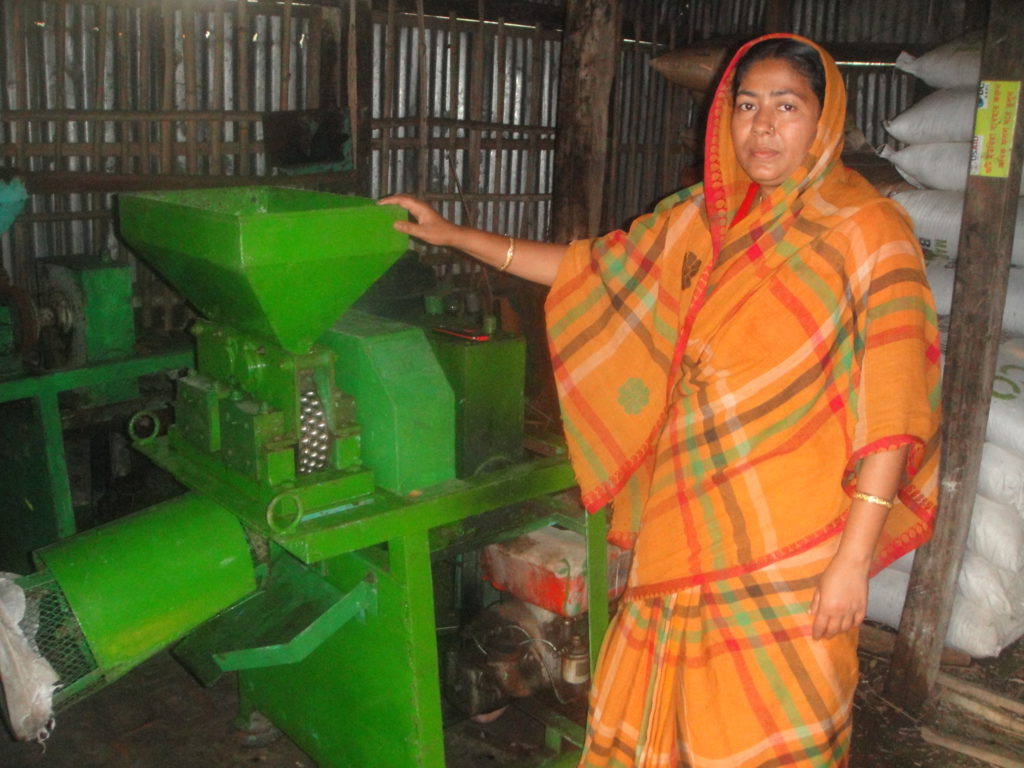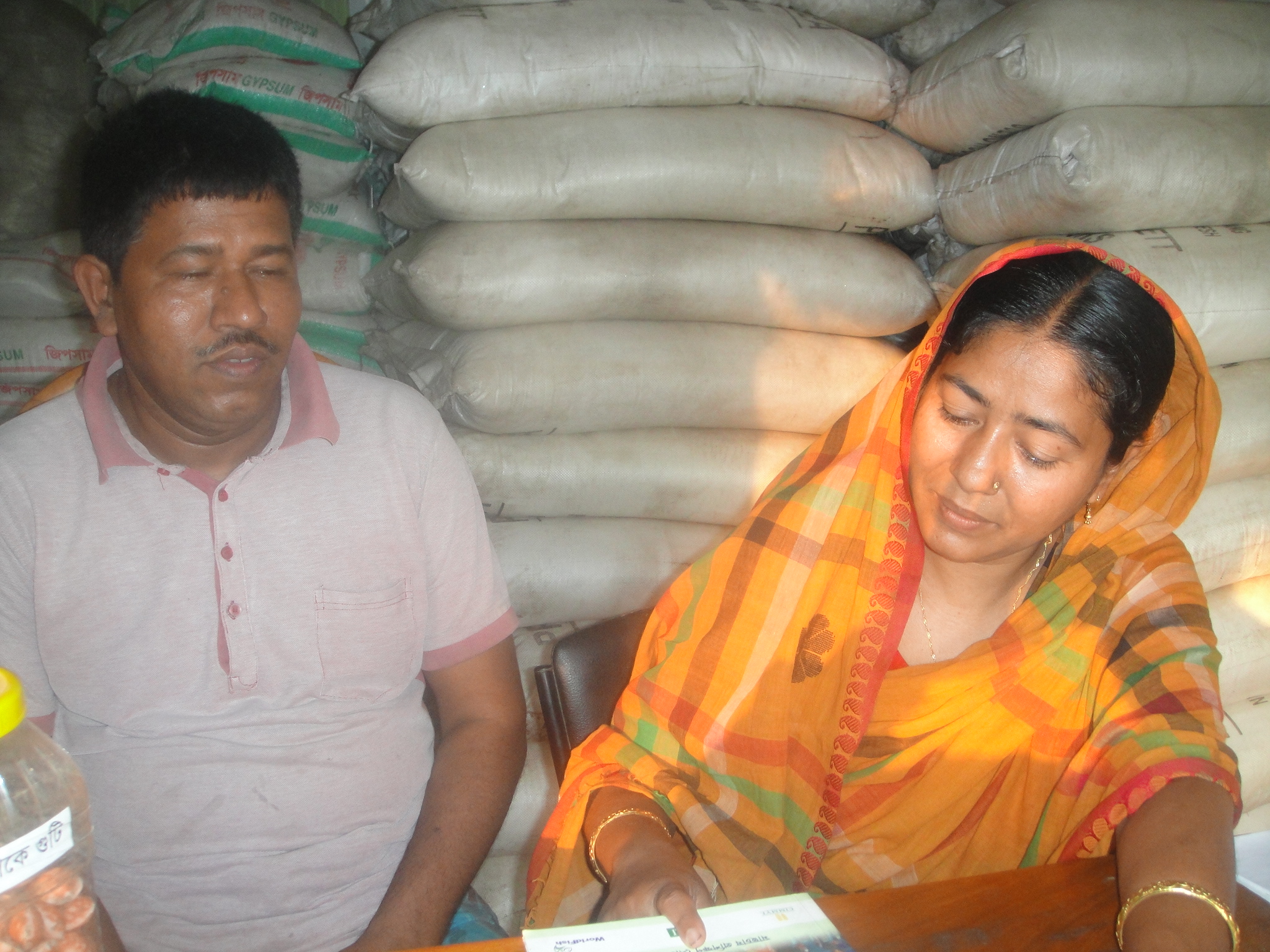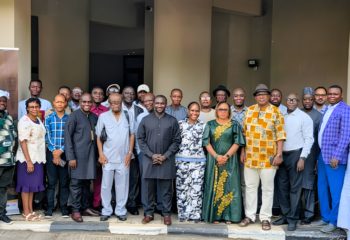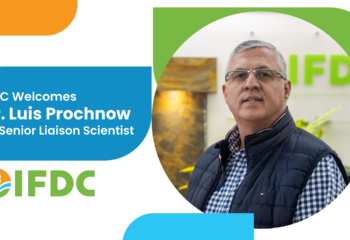
IFDC helps women farmers achieve their dreams because we believe their empowerment is a key to future food security. We want to share the story of a Bangladeshi entrepreneur, Selina Begum. Her story shows what can happen when an empowered woman believes in hard work, dedication and dogged determination in the face of hopelessness.
Selina always did well in school, acing her tests and showing her teachers she was a star pupil. But before graduation, her parents were unable to pay for her final exams.
After she married, she had dreams of continuing her education and finishing what she started, but it never worked. Her husband, Anisur, had been the sole breadwinner since his parents died when he was a child. He worked for his uncle’s grocery and fertilizer store until 2004, when it closed down. Now Anisur was unemployed, and Selina couldn’t find work to help support her husband.
Selina’s entrepreneurial spirit prevailed, though, and she approached her husband about starting a grocery business of his own. They convinced Anisur’s uncle to let them open up shop on some of his land, but now they had a bigger problem: they had no money.
In desperate determination, Selina took out a loan to open a fertilizer and grocery store with her husband.
Business was going well until 2007, when Anisur became sick and couldn’t work. Selina was a mother now, so her two little boys and her mother-in-law were left to run the family business. Hope never left Selina, and her husband made a steady recovery.
If Selina’s hope never abandoned her, her luck did: in November of 2007, Cyclone Sidr struck Bangladesh. Sidr was one of the worst natural disasters in Bangladeshi history, with an estimated 5,000-10,000 lives lost and U.S. $1.7 billion in damages nationwide.
Sidr ripped Selina’s property and farm apart, destroyed her family’s grocery and even killed all the fish in her pond. Despondent, Selina turned to a Mahajan – a moneylender – who gave her a loan at an exorbitant interest rate to get her through the crisis.
In 2009, after a year of rebuilding and recovery, Selina visited IFDC field officers and the Department of Agricultural Extension (DAE). One field officer told her about the USAID-funded Improved Livelihood for Sidr-Affected Rice Farmers (ILSAFARM) project implemented by IFDC. She learned about urea briquettes and how to apply them in her field using urea deep placement (UDP) technology.
ILSAFARM conducted training sessions for many rice farmers, teaching them how to reduce the cost of production while increasing their yields. They showed farmers how to use UDP, and they also facilitated small, rural entrepreneurs by partially subsidizing fertilizer briquetting machines.
Once again, Selina’s entrepreneurial spirit sparked.
“I was so excited hearing about the Guti [briquette] urea, which does not only save cost of rice production but also increases yield,” Selina said. “I immediately decided to purchase a Guti urea machine to come out from my crisis and diversify our business. My husband did not object.”
In mid-2009, Selina and Anisur bought a fertilizer briquetting machine with a subsidy from IFDC. He and Selina both were trained to operate the machine. As a driven entrepreneur, Selina created jobs in her community by hiring four employees to run the machine.
To promote her new product, she set up demonstration plots and invited other farmers to come learn about how UDP can increase their yields. Over the next two years, Selina opened another plot and attracted farmers from neighboring villages who praised her good work and began using the technology on their own farms.

When they began, they were the only urea briquette shop in town. But competition increased as IFDC’s Accelerating Agriculture Productivity Improvement (AAPI) activity began selling more fertilizer briquetting machines. To boost business, Selina and Anisur participated in an AAPI-led training on making nitrogen, phosphorus and potassium (NPK) briquettes. Because of their standing in the community and the base of loyal customers and farmers built over the years, they were able to motivate local farmers and even convince new customers to buy the yield-increasing fertilizer technology.
Selina’s entrepreneurial dreams didn’t stop there. In 2013, she became the president of an integrated pest management club. The next year, with assistance from the DAE, she became a dealer for Syngenta. In 2015, she became a seed dealer under the National Seed Board and then became president of an Integrated Farm Management Component (IFMC) club. Because of her leadership, the DAE nominated the IMFC as one of the best clubs and gave them funds to promote their business, upgrade to a digital club and disseminate UDP to rural areas.
Now, all of Selina’s loans are paid off. She is respected in the community, owns nice furniture and has dug a well on her property for drinking water. She remains devoted to her family and wants to give her sons a complete education – something she never had. And she is grateful to IFDC, the DAE and AAPI for giving her the tools for her success.
“My Guti fertilizer business has changed my vision from being a housewife to a becoming a popular entrepreneur among my community,” she said. “I would like to see more female entrepreneurs like me all over Bangladesh.”




